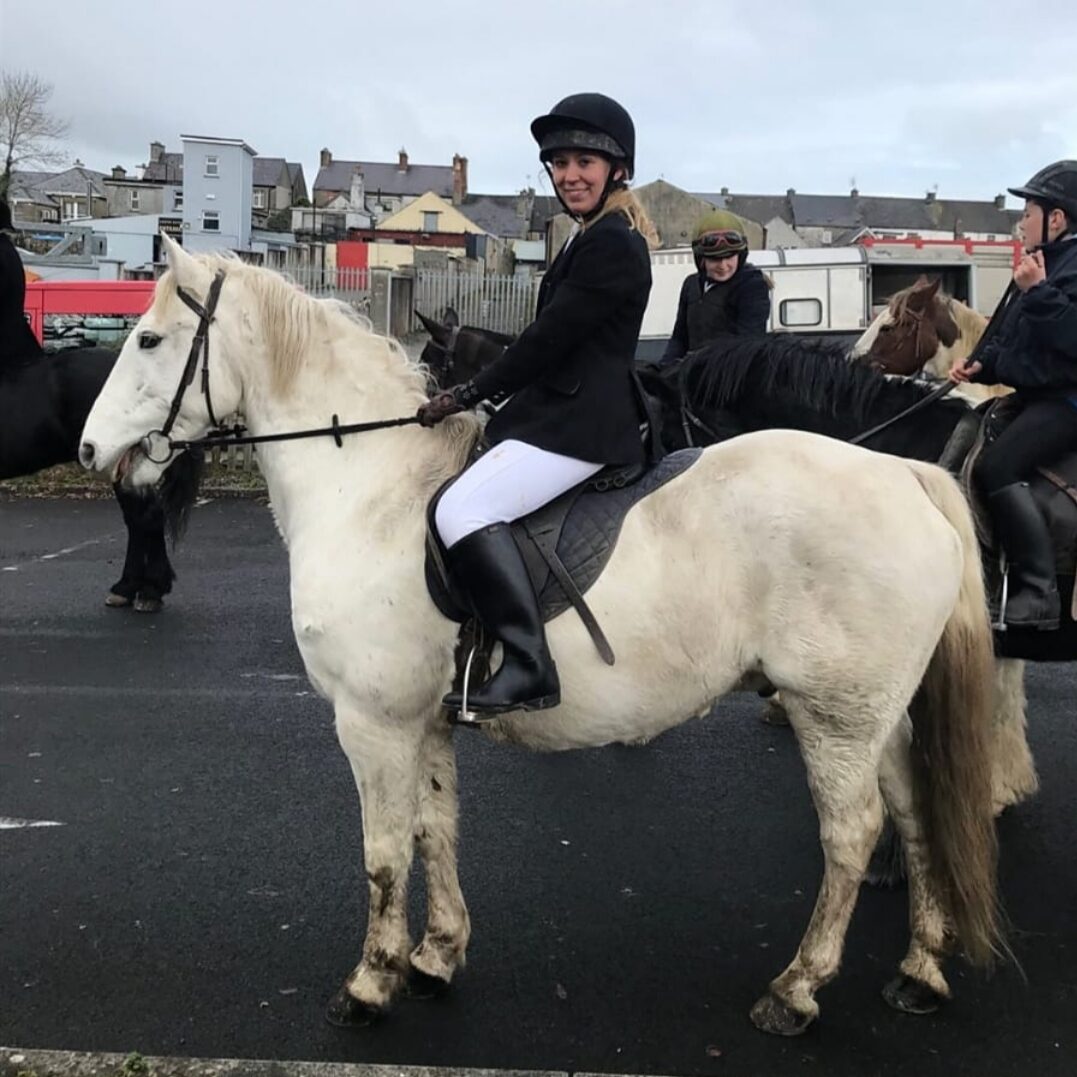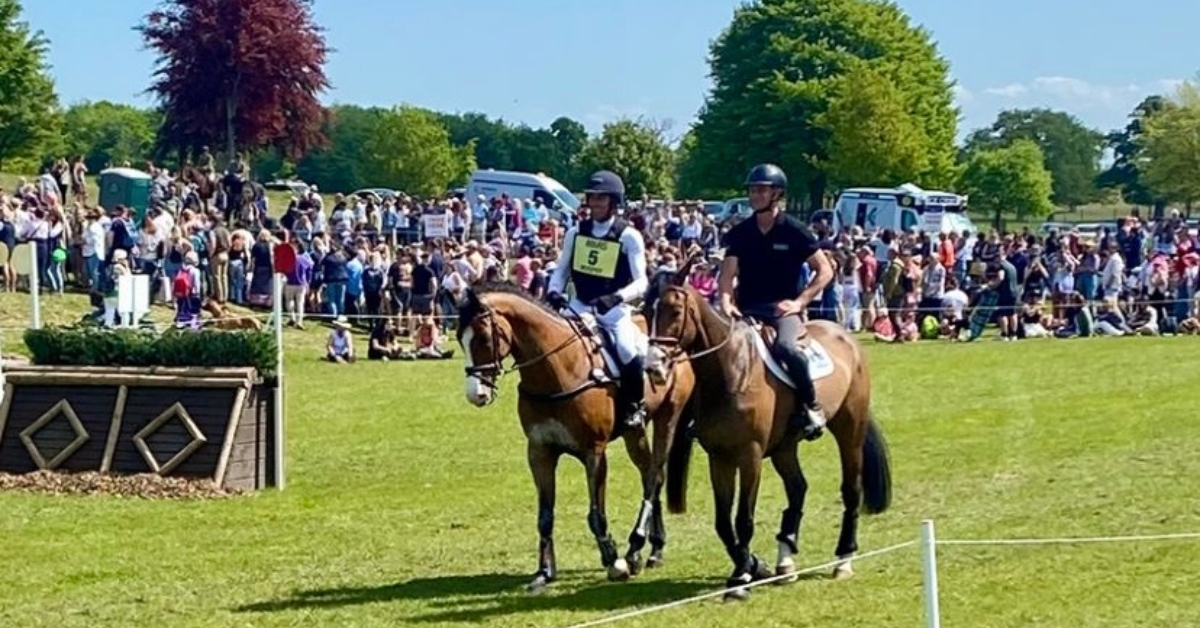I absolutely resonated with Louise McCormack’s article in edition two. Aptly titled “Hunting for me, there is no therapy like it.” It is therapy to canter and gallop on your horse or pony and watch the landscape blur while the wind whips tears from your eyes. The sleepy winter landscape is alive even if just for a few hours by the sight of horses and riders. From a 13.2 pony to a 16.2 hunter, all bravely facing a manner of obstacles – even if the jockey is feeling less so. However, the almost deafening sound of horses clip clopping during days out could become silent. Just whisper “insurance” to almost any equestrian these days for the colour to drain from their faces and knees to go weaker than if they were facing a slippery double drain without adequate supply of dutch courage!
Insurance, the looming elephant in the room for so many organizations. My main reason for this article is the massive amount of misinformation and different stories doing the rounds. I only have experience of how this is affecting the hunting field and cannot speak on how it is hampering riding schools and racing etc. I found Shane Rooney’s earlier article highly informative on how pony racing is struggling due to a similar scenario. Far more beneficial than a recent experience I had reading an argument between who I assume are strangers to each other on social media, regarding insurance within the equestrian world. There were accusations flying between them. And of course, neither party was wrong!
Whilst I cannot deny the “big claim or claims” are deeply damaging to not only the insurance situation but the wider public perception of the sport. We cannot ignore the smaller claims. Why would landowners even dream of allowing a field of horses to pass through if they fear a claim? Equally, why would an insurance company be bothered? Whilst very unfortunate accidents can happen, I don’t believe the blame game should be played. An insurance policy favorable to all involved needs to be agreed on. And this culture of suing for the sake of it simply needs to stop.
When this subject was raised in the Dail, Leo Varadkar responded to say a “collective response was needed by those affected.” I for one do not see that happening. I am not the first one to say within the Grassroots Gazette – there is power in numbers. We need to take control of a situation that’s taking control of us. Yes, I felt like going on a crusade and harassing anyone who would listen. Who did I even think was going to listen to me? But now, a massive volume of equestrians lobbying together – that I feel would warrant a bigger response. And while I feel that response is not necessarily wrong, the government has seemed to wash their hands of this. Are they afraid to “open a can of worms” broaching the idea of “hunting?” Will a tide of activists get their backs up and protest? And before anyone comes for me – I have only ever “drag hunted.” At this moment I won’t go into my personal feelings to either. But I do think the public needs to be more informed. For example, a fellow member of my club was asked if we “caught a fox beforehand and then left it off for hounds to chase?”
We start early, finish late, we happily sacrifice our spare time to get horses fit for a few hours out in the air. We are bizarrely addicted to a sport where we have nothing to gain except injuries.
Sorry I lie, we gain lifelong friends, a deeper understanding of our steeds and a buzz of adrenaline that I have so far found unmatched by anything else. We get to watch the seasons change, the beginning of the season in autumn with its glorious late sunshine. We spend days in the saddle while hailstones bounce off the ground in the bleak midwinter. Finally, in spring horses feel fresher as we have quick days in the spring sunshine. Ponies go out to grass for the summer and we wait for it to start again.
The insurance issue has apparently been sorted in the past few weeks. The quotes, or those few who have gotten quotes are absolutely eye-watering. I seem to be witnessing clubs left, right and center upping the cost of their caps and attempting to pay these astronomical sums. I fail to see how this is resolved if clubs are attempting to make massive payments. I personally don’t think these quotes and policies are feasible long term. Yes, I can see why clubs with higher overheads than my own need to get out back in the saddle and are making a fantastic effort. Realistically speaking, can these kinds of bills be paid next season, and into the future? Yes, it’s great to get back out, but is it good enough to throw together a remedy for this and assume all clubs can raise massive funds and even agree this conclusion was the best one?


Share
Your subscription is 100% Free for our first year, No credit card details required.

The Judging Concerns That Keep Coming Back — And Why They Can’t Be Ignored Anymore We didn’t make it to

There are few sporting events that live up to the hype. Wimbledon? Too many strawberries. Cheltenham? Too many suits. But

British Veterinary Association publishes full response to Competition and Markets Authority’s proposed remedies for veterinary market for household pets. The